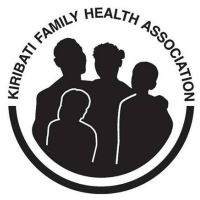

| 31 March 2016
Kiribati Family Health Association
Despite having one of the Pacific's most challenging sexual and reproductive health and rights (SRHR) indicators, the Kiribati Family Health Association (KFHA) has managed to expand the scope and reach of SRHR to those most in need. In the last few years, KFHA has rolled out an exciting array of sexuality education campaigns nationwide, including the successful KFHA Drama Group, which was lauded as a creative approach in the outreach and dissemination of sexual and reproductive health (SRH) information. The association is one of the leading NGO on SRHR and also working on GBV. The government of Kiribati, FBOs and the provincial has been working closely with KFHA. This is evident through MoU that was signed by the association with 8 provincial councils enabling them to provide continuous services on SRHR to these provinces. Website: http://www.kfha.org.ki/

| 31 March 2016
Family Planning Association of Nepal
Established in 1959, the Family Planning Association of Nepal (FPAN) first joined IPPF in 1960 and become a full Member Association in 1969. When it was established, the idea of family planning was considered inimical to religious, cultural and social norms. With the institution of a government Maternal and Child Health Division in 1969, FPAN began to supplement and complement the national health and population programmes. Target populations include injecting drug users (IDUs), lesbian, gay, bi-sexual, trans-sexual and intersex (LGBTI) individuals, people living with HIV (PLHIV), survivors of gender-based violence (GBV) and trafficked returnees and refugees. FPAN serves these populations through an extensive network of 2,750 service points, comprising 127 static clinics, 116 mobile facilities, 184 associated clinics, 543 other agencies, and over 2,000 community-based distributors/services (CBDs/CBSs). Key areas of emphasis include adolescents' sexual and reproductive health, HIV and AIDS prevention and treatment, safe abortion, advocacy for sexual and reproductive health and rights (SRHR), the prevention of gender-based violence (GBV) and support for its victims, and the promotion of access to sexual and reproductive health (SRH) information and services to marginalized and under-served groups. With the dedicated backing of 450 full-time professional staff, 1000 community counsellors, 4000 peer educators and 11,000 grassroots volunteers, FPAN has the capacity to mobilize on a large scale, and with the support of over 20 governmental departments, non-governmental organizations (NGOs) and foundations, it has a secure funding base to maintain and expand its comprehensive programme of activities. Contacts Website: www.fpan.org







